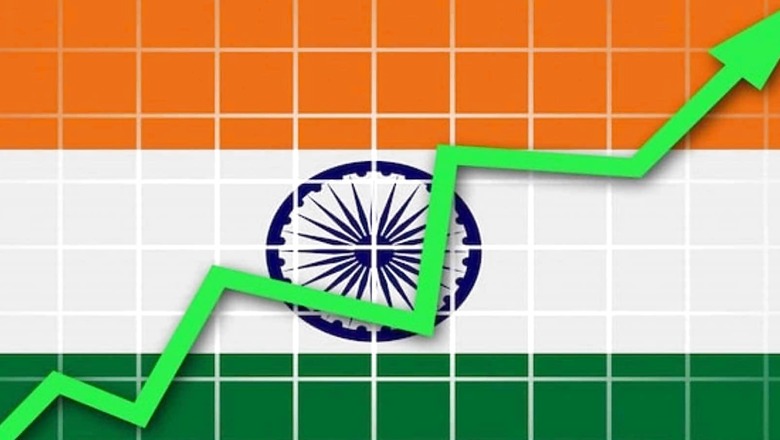
views
India and China are expected to contribute more than 50 per cent of the global growth this year, with the rest of Asia contributing an additional quarter. This is due to fading supply-chain disruptions and a boom in the services sector, according the International Monetary Fund (IMF).
“The economic headwinds that faced Asia and the Pacific last year have started to fade. Global financial conditions have eased, food and oil prices are down,” the IMF said in a blog. It added that these developments are helping improve prospects across the region, with growth set to accelerate to 4.7 per cent this year from 3.8 per cent in 2022. This will make it by far the most dynamic of the world’s major regions and a bright spot in a slowing global economy.
“The region’s emerging and developing economies, poised to expand by 5.3 per cent this year, drive this dynamism. These economies are hitting their stride as pandemic supply-chain disruptions fade and the service sector booms. China and India alone are expected to contribute more than half of global growth this year, with the rest of Asia contributing an additional quarter,” the IMF said.
It also said the region’s emerging and developing economies, poised to expand by 5.3 per cent this year, drive this dynamism. These economies are hitting their stride as pandemic supply-chain disruptions fade and the service sector booms.
“China and India alone are expected to contribute more than half of global growth this year, with the rest of Asia contributing an additional quarter. Cambodia, Indonesia, Malaysia, the Philippines, Thailand, and Vietnam are all back to their robust pre-pandemic growth,” the IMF said in the blog dated February 20, 2023.
It added that the most significant revision since we last published forecasts in October has been to China, where a sudden re-opening has paved the way for a faster-than-expected rebound in activity. China has strong trade and tourism linkages, so this is positive news for Asia, as half of the region’s trade takes place between its economies.
IMF on Inflation
The IMF said Asia’s inflation, which rose worryingly above central bank targets last year, is poised to moderate. There are now encouraging signs that headline inflation peaked during the second half of last year, though core inflation is proving more persistent and has yet to ease definitively. “We expect inflation to return to central bank targets sometime next year amid an easing of financial and commodity headwinds.”
It added that global financial conditions have eased somewhat, and with them the US dollar has lost some strength. Central banks in Asia have been hiking interest rates as they tackle above-target inflation. These factors have helped Asian currencies rebound, with most erasing about half of last year’s losses, which has eased pressure on domestic prices.
Elevated Debt, Financial Risk
“With several Asian countries facing debt distress, authorities must continue with their plans for gradual fiscal consolidation. Doing so will also ensure that monetary and fiscal policies are not acting at cross purposes,” the IMF said.
It added that many Asian countries face elevated financial vulnerabilities, with high leverage across household and corporate sectors, and significant bank exposure to real estate downturns. This suggests subtle policy trade-offs between controlling inflation and ensuring financial stability, and a need to strengthen resolution frameworks.
Read all the Latest Business News here


















Comments
0 comment